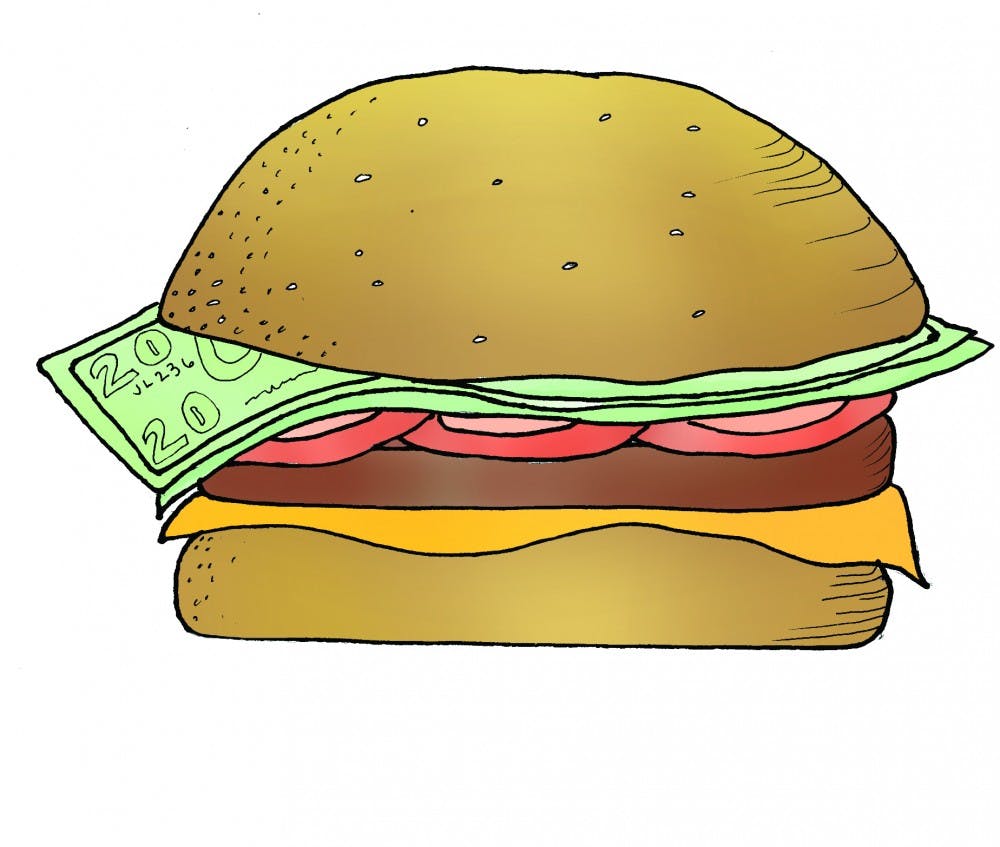When Emma Frieh worked at Panera Bread in high school, some of her coworkers were her parents’ age. They worked from paycheck to paycheck, afraid to quit or complain because that job was the only way for them to support their families.
The Fight for $15 is a nationwide campaign to help these families. The protest is to raise minimum wage in New York State from $8.75 to $15. In the Student Union Flag Room on Wednesday, Frieh and Joel Inbody, a graduate sociology student, and a D’Youville student spoke at the panel. They discussed the workers’ right to unionize without backlash from managers and owners, the working conditions in fast food restaurants, cruel and exploitative managers and the struggles people face living on the current minimum wage – $8.75 in New York State.
“My coworkers worked hard, woke up before sunrise to run off to work while also raising families,” said Frieh, a senior sociology major. “A lot of them didn't have the money to go to college and found themselves stuck in a job that exploited their labor and silenced their needs.”
Frieh’s conversations with her coworkers helped her understand the need for a non-poverty wage and free unionization, she said.
But it’s not only non-college grads working minimum wage jobs. More than three-quarters of a million people with college degrees work a minimum-wage job, according to the U.S. Bureau of Labor Statistics.
Frieh has spoken to people in her classes who work minimum wage jobs to alleviate loan debt, and working only takes away from time and focus on their schoolwork, she said.
“Students should be students while they’re in school, but the conditions of our economic reality make that a dream very separate from the fact that so many students struggle to make ends meet,” Frieh said.
Frieh said that understanding the exploitative nature of capitalism made her seek ways to help those who are exploited.
“When we work in front of a register or a grill all day, we don’t create anything intrinsically meaningful to us and we sell our labor to the corporation so that we can make enough money to survive,” Frieh said.
A workers’ strike against corporate fast food companies in Buffalo is currently being organized to take place on April 15 and Fight for $15 encourages students to support the movement.
“Fast food workers were coming to us and said let’s bring [Fight for $15] here in Buffalo,” said Reverend Kirk Laubenstein, the executive director at Coalition for Economic Justice, a worker’s rights group in Buffalo.
The last time the coalition had a strike, 150 people came to march down Main Street.
“When fast food workers make the owners and the corporation billions of dollars they are certainly entitled to that kind of money,” Inbody said.
The Fight for $15 has had effective outcomes in other cities.
Seattle and San Francisco have passed laws raising their minimum wage to $15 an hour.
Frieh said it is necessary to stand in solidarity with workers to support their strike and because these goals have been achieved elsewhere, she said there is hope they can make $15 and unionization a reality in Buffalo.
On April 8, there will be a general meeting in the Student Union Flag Room to discuss and plan the strike on April 15 and make it clear that they “demand fair wages and union rights for fast food workers.”
Samantha Brenner is a features staff writer and can be reached at features@ubspectrum.com





